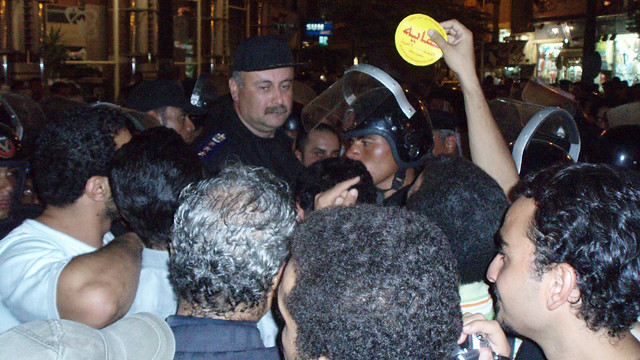Egypt’s most notorious terrorists.
Tag: ss
Resources on Egypt’s State Security Police
A chat with the Taba police
A State Security officer, in his 20s, at the Taba police checkpoint, as he rudely searches my car: What do you do?
Me: I work for Al-Masry Al-Youm.
SS: Gareeda mo3arda malhash ay lazmah (A useless opposition newspaper).
Me: It’s an independent not opposition paper.
SS: Is is a government newspaper?
Me: No.
SS: So it’s a useless opposition newspaper.
Me: It’s not run by an “opposition” party.
SS: Is it a government newspaper?
Me: No, I told you..
SS: So it’s a useless opposition newspaper.
Cement workers protest colleague’s torture
Hundreds of Cement workers are staging a sit-in protesting the torture of one of their colleagues on the hands of State Security Police.
